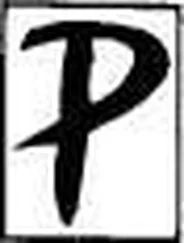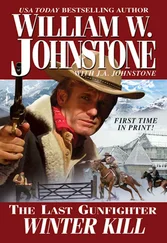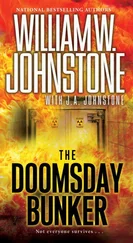William Johnstone - A Good Day to Die
Здесь есть возможность читать онлайн «William Johnstone - A Good Day to Die» весь текст электронной книги совершенно бесплатно (целиком полную версию без сокращений). В некоторых случаях можно слушать аудио, скачать через торрент в формате fb2 и присутствует краткое содержание. Год выпуска: 2012, Издательство: Kensington Publishing Corp., Жанр: Старинная литература, на английском языке. Описание произведения, (предисловие) а так же отзывы посетителей доступны на портале библиотеки ЛибКат.
- Название:A Good Day to Die
- Автор:
- Издательство:Kensington Publishing Corp.
- Жанр:
- Год:2012
- ISBN:нет данных
- Рейтинг книги:4 / 5. Голосов: 1
-
Избранное:Добавить в избранное
- Отзывы:
-
Ваша оценка:
- 80
- 1
- 2
- 3
- 4
- 5
A Good Day to Die: краткое содержание, описание и аннотация
Предлагаем к чтению аннотацию, описание, краткое содержание или предисловие (зависит от того, что написал сам автор книги «A Good Day to Die»). Если вы не нашли необходимую информацию о книге — напишите в комментариях, мы постараемся отыскать её.
A Good Day to Die — читать онлайн бесплатно полную книгу (весь текст) целиком
Ниже представлен текст книги, разбитый по страницам. Система сохранения места последней прочитанной страницы, позволяет с удобством читать онлайн бесплатно книгу «A Good Day to Die», без необходимости каждый раз заново искать на чём Вы остановились. Поставьте закладку, и сможете в любой момент перейти на страницу, на которой закончили чтение.
Интервал:
Закладка:
Riding with Quantrill had taught him the value of having plenty of firepower where he could get to it fast. Returning to Hangtree had firmed up that belief.
Ahead lay a low ridge running north-south, cut at right angles by the Hangtree Trail. Hangtown lay just east of the rise.
North of the trail rose the Hanging Tree, a towering dead oak, silver-gray and lightning-blasted. It had broken limbs sticking out from its sides. At its foot, lay black, sticklike crosses, slanting wooden grave markers, and weedy mounds of Boot Hill, burial place of the poor, the lost, and the damned.
South of the trail, the rise was topped by a white-painted wooden church with a bell tower topped by an obelisk-shaped steeple. Nearby was the churchyard cemetery, neat and well kept.
Johnny and Luke crested the ridge. On the far side, the trail dipped and ran east into Hangtown. Once in town, the road became Trail Street, the main drag. It was paralleled on the north by Commerce Street, south by Mace Street.
At the east end of Trail Street stood the courthouse and the jail, Hangtown’s only stone buildings, built in the 1850s. The courthouse fronted east, a two-story brown sandstone structure with a clock tower. The jail fronted north, its long walls running north-south, a one-story brick building with iron bars on the windows. South central of town a jumble of adobe houses and wooden huts grouped around an oval plaza. Mextown.
Southwest of town was a grassy open field with a stream running through it. A wagon train was camped there, with more than two dozen wagons arranged in a circle. Horses and oxen were pastured nearby. Smoke rose from cooking fires. People moved to and fro, youngsters weaving in and out around them.
Johnny and Luke rode down the ridge into town. It was a little past ten o’clock in the morning.
Saturdays were usually busy in Hangtown. Ranchers and their families from all over the county came in to trade, barter, or buy. The fine late June weather had brought them out in big numbers. Wagons lined boardwalk sidewalks fronting the stores on both sides of Trail Street. Groups of kids ran up and down the street, playing tag.
Many cowboys and ranch hands worked only a half day on Saturday; they would start coming in after twelve noon. The week’s wages burned a hole in their pockets, itching to be spent on whiskey, women, and gambling.
Johnny and Luke put their horses up at Hobson’s Livery stables and corral, which was south of the jail. Once the horses were squared away, Johnny said, “Let’s get some chow.”
“Hell, let’s get a drink,” Luke said.
“Chow first. It’s early yet.”
Luke gave in with poor grace and they went into Mabel’s Café. They sat at a table, ordered breakfast, and soon were digging into a big meal of steak and eggs, biscuits, and coffee.
Fortified, they exited the restaurant a few minutes later. Johnny reached into an inside breast pocket of his jacket for one of several long, thin cigars he kept there. He bit the end off, spat it out, and lit up. Luke used a penknife to cut a chaw off a plug of tobacco, stuck it in the side of his mouth, and commenced to work on it.
They moved on, north to Trail Street. With his crutch wedged under his left arm, Luke swung along with the facility that comes with much practice. Men with missing limbs were a commonplace throughout the land in the war’s aftermath.
Johnny padded along at a nice easy pace so as not to get Luke winded. Besides, he was in no hurry. Turning left at Trail Street, they went west along its south side, nodding to acquaintances, saying hello in passing. Johnny smoked his cigar, trailing blue-gray smoke. Luke squirted tobacco juice from time to time.
Johnny liked to watch the passing parade, especially the pretty girls, the town misses, and ranchers’ daughters. They were bright eyed, with well-scrubbed shining faces.
Their wayward sisters, denizens of the saloons and the houses, were mostly still abed, not yet astir. Johnny liked them well enough, too—perhaps too well. But they belonged to a half world of gamblers, barkeeps, whores, hardcases, and thrill seekers—sinners all. They were nightbirds who flew when the sun went down.
At ten-thirty in the morning, respectable folk held sway, crowding the wooden plank sidewalks fronting the stores. Luke flattened against a wall to dodge a gang of kids chasing each other, shouting back and forth. He and Johnny made their way west, sidestepping knots of people.
“Lot of strangers in town,” Luke said.
“Must come from that wagon train, Major Adams’s outfit,” Johnny said.
The strangers were a rough-hewn lot, decent-seeming enough, but bearing the look of having done a lot of hard traveling with a long way yet to go. Some were staring, others shy, but all had the aspect of wayfarers. Pilgrims.
“Where’re they going, Johnny?”
“West to Anvil Flats and then across the plains to the Santa Fe Trail, I reckon.”
“And then?”
Johnny shrugged. “Denver, or the mines in Arizona or Nevada. California, maybe. Who knows?”
“Damn fools.” Luke jetted some tobacco juice into the street. “I mean, the ones taking their families with them.”
“Can’t leave ’em behind,” Johnny said reasonably.
“Well, maybe not. But they got a hard road ahead. Lucky to make it without losing their hair.”
“Major Adams knows his business, they say.”
“They say.”
“His wagons have gotten through so far.”
“Not all of them. Injins and outlaws, desert and mountains did for more’n a few.”
“That ain’t the Major’s fault. They knew their chances when they set out,” Johnny countered. “Anyhow, what’ve they got to go back to? Most of them are Southrons. All they own is their wagons and what’s in them.”
“They’re lucky Billy Yank left them that much,” Luke said.
They crossed the street to the Cattleman Hotel with its raised front porch and verandah. A half dozen wooden steps accessed it, with another such stairway leading down at the opposite end. Johnny and Luke went around it, walking in the street fronting the structure.
“Ever get a hankering to go wandering again, Johnny? See what’s over the next hill, break new trails?”
“Not lately. I’ve been a rolling stone for a long time. I’d like to stay put for a while. You?”
“Can’t say as I’ve got itchy feet, seeing as I only got one foot left to get a itch on. Hangtown ain’t nothing special to me, now that the rest of us Pettigrews is either dead and gone or moved on. But it’ll do for now.”
“Why’d you ask, then?”
“Seeing them pilgrims got me to wondering, that’s all.”
Across the street was the Alamo Bar, a high-toned watering hole. Farther west, on the next block, was Lockhart’s Emporium, the biggest general store in the county.
A stout middle-aged matron with a couple kids clinging to her skirts stood outside the store. A lightweight, four-wheeled cart drawn by a single horse was drawn up alongside the boardwalk.
A store clerk laden with packages came out the front door. He was young and thin, with a bookkeeper’s green-shaded visor on his head. He wore a white bib apron over a long-sleeved striped shirt and pants. The bulky parcels wrapped in brown paper and tied with string were held in front of him against his chest, piled so high he couldn’t see over them. He navigated by peeking around and to the side of them.
He was followed by a young woman. She held two bundles by the strings, one in each hand, arms at her sides. Masses of dark brown hair were pinned up at the top of her head. She had wide dark eyes, high cheekbones, and a well-formed, clean-lined face. In a yellow dress, she was slim, straight, and shapely.
She was worth looking at, and Johnny Cross did just that.
Читать дальшеИнтервал:
Закладка:
Похожие книги на «A Good Day to Die»
Представляем Вашему вниманию похожие книги на «A Good Day to Die» списком для выбора. Мы отобрали схожую по названию и смыслу литературу в надежде предоставить читателям больше вариантов отыскать новые, интересные, ещё непрочитанные произведения.
Обсуждение, отзывы о книге «A Good Day to Die» и просто собственные мнения читателей. Оставьте ваши комментарии, напишите, что Вы думаете о произведении, его смысле или главных героях. Укажите что конкретно понравилось, а что нет, и почему Вы так считаете.








